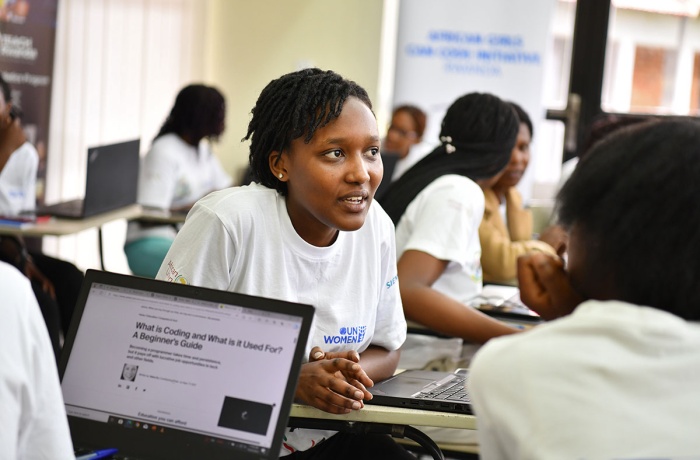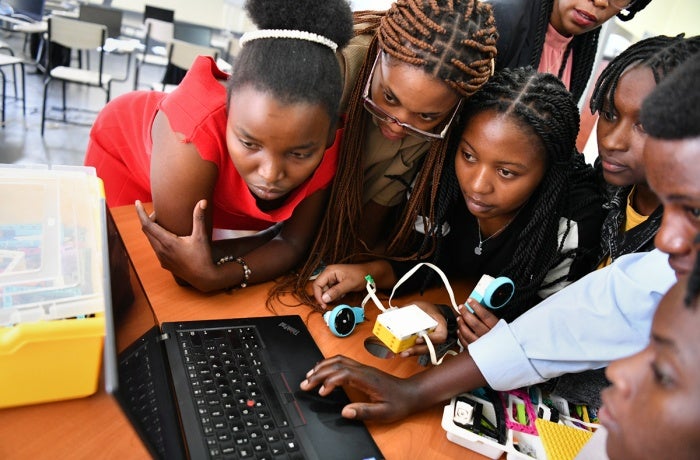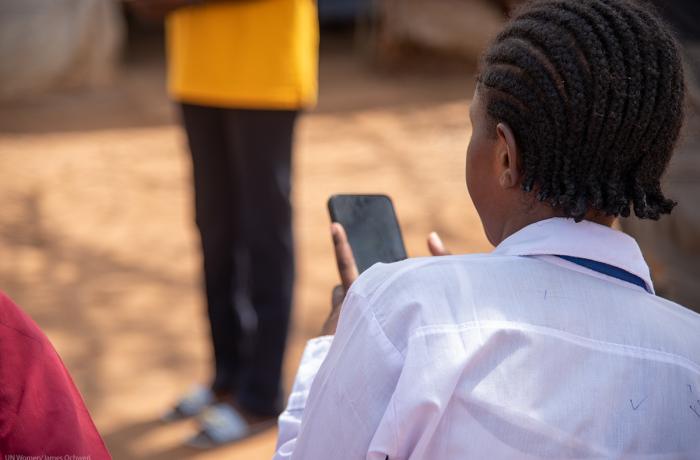UN Women statement for the International Girls in ICT Day 2024
UN Women joins young women and girls globally who are putting a spotlight on leadership in the digital world. Girls’ leadership in Information, Communication and Technology (ICT) and Science, Technology, Engineering and Mathematics (STEM) is now more crucial than ever.
To achieve full, equal and meaningful participation in ICT, young women and girls must have equal opportunities to learn digital skills and technology fundamentals, and accessible and quality education in ICT from an early age.
As the convener of the Generation Equality Action Coalition on Technology and Innovation for gender equality, UN Women calls on all stakeholders to provide platforms where girls can design, develop and implement tech-driven solutions.
Young women and girls need to see themselves as change-makers in the field, and they need to be able to see clear routes to become leaders in the field. Highlighting successful female leaders in the ICT field is crucial for inspiring girls and to help identify a potential career path. They also need learning environments that actively combat gender bias, promote diversity and connect young women and girls with role models.
Every girl has a right to access and use digital tools and be safe. She has the right to play her part in shaping a more equal, inclusive, and tech-driven future. In support of this, the UN Secretary-General has called for a global digital compact for improved digital cooperation which requires everyone to place gender equality at the heart of its priorities.
That means ensuring that women and girls have equal access to leadership training, career development, scholarships, and fellowships. It means addressing gender stereotypes and bias and challenging societal norms and stereotypes that discourage girls from pursuing ICT careers.
In 2023, at CSW67, the world recognized the need for safer online environments that protect girls from encountering sexist remarks, objectification, and discriminatory attitudes, all of which can undermine their sense of belonging and credibility in the tech community.
Encouraging initiatives have been set in motion and must be replicated and scaled up. The African Girls Can Code Initiative (AGCCI) is a programme that trains young women between the ages of 17 and 25 in digital literacy, programming, and work-readiness skills. The initiative's goal is to empower young women to become programmers, coders, and designers, and to pursue careers in the ICT sector. The African Union Commission and UN Women are spearheading this initiative in partnership with ITU, ECA, UNESCO and UNICEF, which is supported by the Government of Belgium.
On International Girls in ICT Day, the world needs to come together to ensure the meaningful leadership of girls in ICT, in all their diversity, to ensure the strategic representation of issues that matter to them. That is a vital goal for us all and demands that we listen to them and ensure that their influence shapes the decisions made to achieve a shared digital future.








